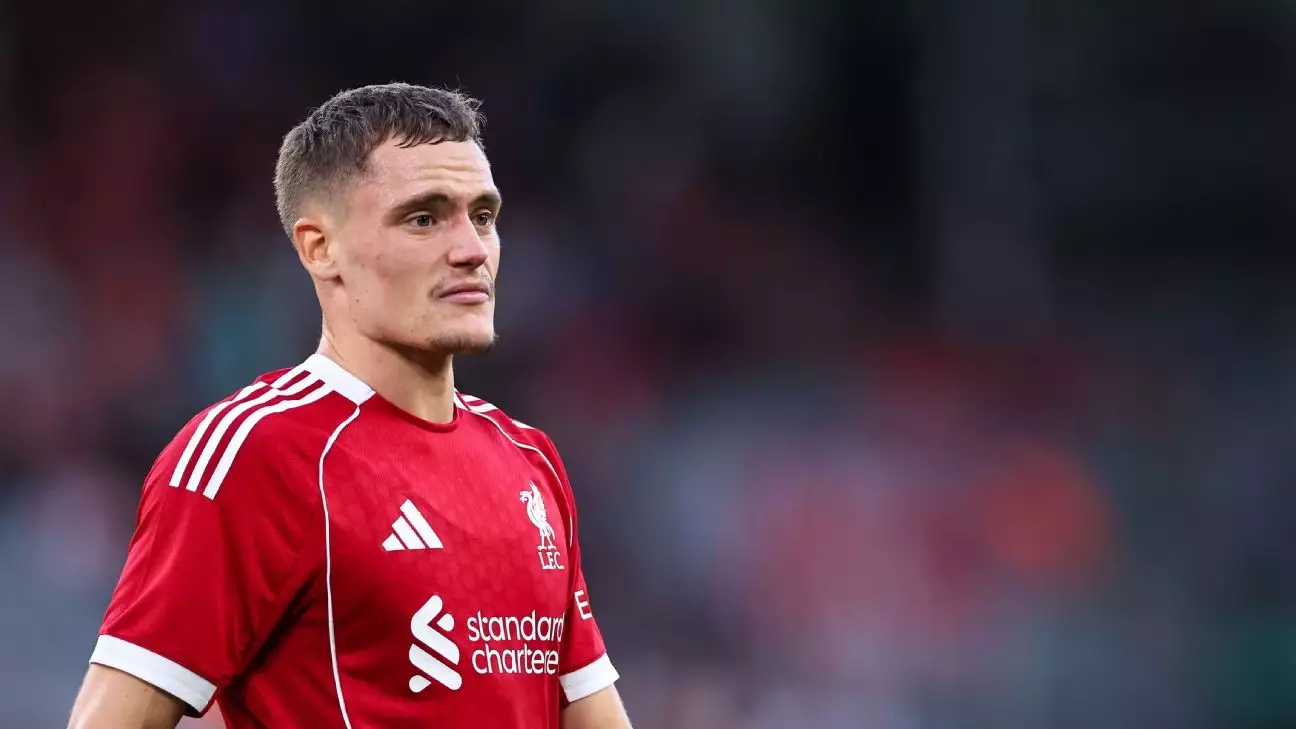In an era marked by relentless football evolution, Liverpool finds itself at a pivotal crossroads. The departure of Trent Alexander-Arnold to Real Madrid signifies more than just a player leaving; it symbolically underscores the club’s need to evolve from traditional reliance on established stars to fostering new sources of ingenuity. Arne Slot’s comments on Florian Wirtz’s creative potential illustrate a conscious effort to recalibrate the team’s tactical DNA. Rather than lamenting the loss, Liverpool’s coaching staff appears optimistic about integrating fresh talent to maintain their competitive edge, signaling a broader strategic vision rooted in adaptability.
This shift isn’t merely about replacing a star; it’s about reshaping the team’s identity. Wirtz’s arrival, characterized by his inventive playmaking, suggests a deliberate move toward a more versatile and unpredictable approach. Liverpool’s legacy as a powerhouse rooted in dynamism and creative flair remains intact, but it now increasingly hinges on the development of players who can fill those creative voids in unconventional ways. Such a transition demonstrates a mature understanding that modern football rewards tactical flexibility and innovative thinking over rigid reliance on individual brilliance.
Preseason as a Reflection of Broader Aspirations
The recent friendly victory over Athletic Club, where Liverpool showcased a squad brimming with new signings, serves as a window into the club’s evolving strategic ambitions. The £270 million investment in fresh talent signals a proactive approach to squad building. The diverse skills brought by players like Wirtz, Jeremie Frimpong, Hugo Ekitike, and Milos Kerkez reflect a desire to diversify tactical options while cultivating internal competition.
While the team’s attacking prowess was evident—goals from Salah, Gakpo, and Ekitike demonstrate offensive dynamism—the match also exposed vulnerabilities. Defensive weaknesses, especially during set pieces, highlight the ongoing challenge of integrating new defenders amidst injuries and absences. Yet, these issues are not merely tactical glitches but signal a fundamental philosophical shift: Liverpool is no longer a team solely dependent on its historical strengths but one actively experimenting with new formations, defensive structures, and attacking variants to adapt to the demands of modern football.
The club’s attitude toward these challenges reveals a focus not on instantaneous perfection but on long-term resilience. The celebration of Diogo Jota—who tragically passed away—during matches exemplifies the emotional cohesion and culture of perseverance that underpins Liverpool’s identity. The displays of unity and remembrance serve as reminders that success isn’t solely measured by wins but by the ability to rally and adapt through adversity.
Playing the Long Game: Developing Future Leaders
A notable feature of the preseason is the emergence of young talents like Rio Ngumoha and Ben Doak, whose performances hint at a strategic emphasis on youth development. Liverpool’s willingness to give these players significant minutes and trusting them to deliver in high-pressure moments upends traditional expectations, signaling a departure from short-term fixes to invest in future leadership.
This focus on cultivating homegrown talent aligns with a broader footballing trend—of clubs seeking sustainable growth rather than quick fixes. The potential departures of established players like Nunez or Elliott are viewed not as setbacks but as opportunities to foster new leadership within the squad. Liverpool’s management seems acutely aware that building a team rooted in resilience, creativity, and internal progression will serve them better than continually depending on high-profile transfers.
Moreover, the interplay between seasoned professionals and emerging stars creates an environment of mentorship and shared responsibility. This catalytic mixing fuels a culture where adaptability and unity become the cornerstones of success. By integrating youthful exuberance with experienced tactical acumen, Liverpool aims to forge a resilient team capable of surpassing its former glory, not just through individual brilliance but via collective innovation and mental toughness.
Liverpool’s current phase is less about patching leaks and more about reengineering their approach to football dominance. The club’s embrace of creative players like Florian Wirtz, combined with its investment in youth and resilience in adversity, underscores a confident belief that true strength lies in adaptability. While setbacks like defensive lapses and player departures pose challenges, they also provide opportunities for growth and reinvention.
This evolution signifies that Liverpool is no longer resting on its laurels but actively seeking innovative pathways to sustain success. In doing so, they exemplify a modern footballing ethos: resilience doesn’t mean stagnation but the courage to reinvent, to challenge traditional assumptions, and to turn vulnerabilities into new sources of strength. As the team adjusts and grows, it becomes clear that Liverpool’s relentless pursuit of excellence is now intertwined with a willingness to think differently and evolve dynamically—an approach that could very well define their future legacy.


Leave a Reply